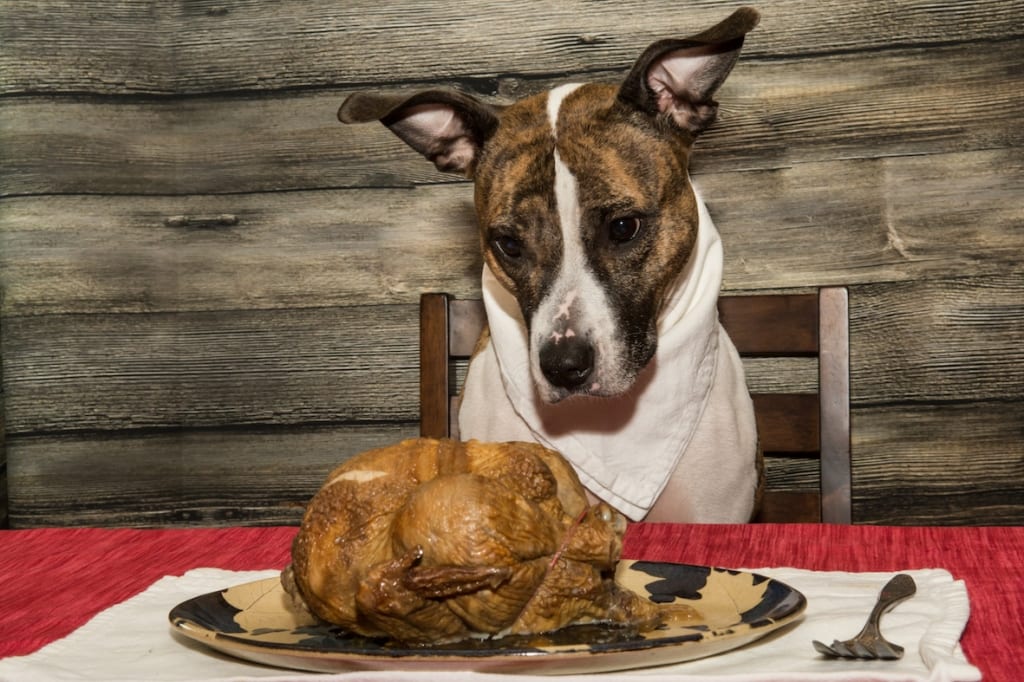 With Christmas and New Year just a few days away, you’re probably planning your festive season down to the last detail. And whether you’re going away or staying home, if your pets are going to celebrate with you, it’s essential that you plan their menu as carefully as your own.
With Christmas and New Year just a few days away, you’re probably planning your festive season down to the last detail. And whether you’re going away or staying home, if your pets are going to celebrate with you, it’s essential that you plan their menu as carefully as your own.
Pancreatitis in dogs is a devastating illness that can attack young or senior pets, and it’s just one of the many medical conditions that can result from feeding your pet the wrong foods.
Causes of Pancreatitis in Dogs
While there are many factors that can lead to your pet developing pancreatitis, healthy nutrition plays one of the biggest roles. If your dog’s diet includes regular human food such as table scraps or he routinely raids the trash, the chances are good that he’s getting more fat than he should have.
A high-fat diet is one of the primary causes of pancreatitis, along with the obesity that usually accompanies it. A high-fat diet also contributes to metabolic disorders such as hyperlipidemia and hypercalcemia, which means that the dog’s blood contains high levels of lipids and calcium, respectively. Other causes of pancreatitis include shock or trauma, scorpion stings, and certain medications. As well, dogs that have previously had the illness are more prone to developing it a second time around.
Pancreatitis Symptoms
Pancreatitis is diagnosed through blood tests and biopsies. Since a biopsy is fairly invasive, your veterinarian may begin with a series of blood tests. If your dog displays any of these symptoms it could suggest pancreatitis:
- Signs of gastro-intestinal upset, including vomiting and diarrhea
- Refusal to eat or other signs of depression
- Pain in the abdomen, which is often indicated by a “hunched-over” appearance
- Fever or dehydration
- Irregular heartbeat and difficulty breathing
- Infections or hemorrhaging anywhere in the body.
Because these signs aren’t specific only to pancreatitis in dogs, they can indicate any gastrointestinal condition, and it’s only with a professional evaluation and testing that your veterinarian can determine the problem.
Treating the Condition
If your veterinarian determines that your dog has pancreatitis, the treatment commonly involves letting the pancreas “rest” and recover by eliminating food and water for two to three days. The dog will receive IV fluids to prevent dehydration, and at the same time will have medication to reduce the pain of inflammation that typically goes with pancreatitis in dogs. He might receive medication to reduce nausea and antibiotics to prevent bacteria traveling from the diseased area to other parts of the body.
Your veterinarian might also recommend nutritional supplements and/or specialized diets such as the probiotic Forti Flora, as well as EN Gastroenteritic food, or a basic diet of boiled chicken and rice. All of these can be used to help patients recover from pancreatitis.
Preventing Pancreatitis
Your best bet for preventing pancreatitis in dogs is to keep a close eye on your dog’s eating habits. Start right away by feeding healthy meals during the holidays. This includes:
- Sticking to your dog’s regular diet as far as possible to avoid stomach upsets.
- If you must give him turkey meat, choose a piece that’s boneless and well-cooked to avoid airway obstructions and salmonella bacteria.
- Exclude foods such as stuffing that contains herbs with essential oils and resins, because if eaten in large quantities these can cause upset stomachs and depress the central nervous system.
- Skip bread dough, which could rise once it’s ingested as a result of the heat in his body and cause a life-threatening emergency that requires surgery.
- For a healthy treat, you can try green beans, which are very low in calories, or PLAIN sweet potatoes or PLAIN pumpkin, both of which are good for their digestion!
Keep up your pet’s regular exercise program—it’s good for both of you to walk off a meal that’s heavier than usual.
The festive season is a time of joyful celebration. The last thing you need is for it to contribute to your dog developing an illness such as pancreatitis, so focus on staying within these guidelines during this period.

